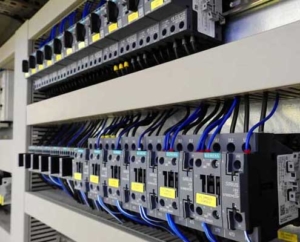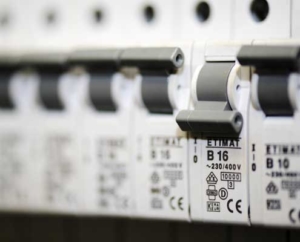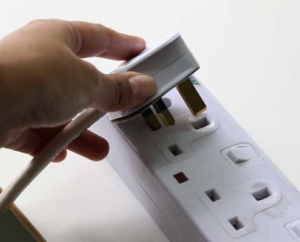What is an Electrical Fire?
On a daily basis, pretty much everything we use involves electricity in some form. Therefore, electricity is an integral part of our daily lives. We rely on it to power our homes, offices, streets and various electronic devices. Even now our transportation. However, electrical systems, if they are not properly maintained or operated in the correct way, can pose a significant risk of fire.
Therefore, we will help you in understanding what an electrical fire is. Furthermore, how to prevent them to ensure the safety of ourselves, colleagues, family and properties.
We also cover a range of electrical emergencies in addition to electrical fire in this article “What is considered an Electrical Emergency?”
In this article, we will explore the nature of electrical fires, their causes, and the measures we can take to prevent them.
Outline of an Electrical Fire
An electrical fire is a type of fire that is caused by an electrical fault or malfunction. It occurs when an electrical current overheats some part of the electrical component which then leads to a fire. This fire can then spread to flammable materials and grow out of control.
Electrical fires, like all fires, can be devastating, causing property damage, injuries, and even loss of life. Therefore, it is essential to be aware of the common causes of electrical fires and take necessary precautions to prevent them.
Causes of Electrical Fires
Faulty Wiring or Electrical Equipment
One of the leading causes of electrical fires is faulty wiring or electrical equipment. Over time, electrical wiring can deteriorate. Factors leading to deterioration can include.
- Poorly installed cables
- Incorrect design and loading for the proposed equipment
- Ageing Cables
- Rodent Damage
- Physical Damage such as crushing or cutting
- Lack of maintenance on electrical equipment
If not addressed promptly, damaged wiring can result in short circuits or electrical arcing, Therefore, leading to sparks and fires.
Similarly, faulty electrical appliances or devices with damaged wires or malfunctioning components can pose a significant fire hazard.
Regular inspection and maintenance of electrical systems and equipment are vital to identify and rectify potential issues before they escalate into fires. These electrical checks could come under PAT Testing for appliances or EICR testing and certification for fuse boards and circuits
Electrical Overload
Another common cause of electrical fires is electrical overload. This occurs when too many electrical devices are connected to a single circuit. Thus, exceeding that circuit’s electrical capacity.
Overloading a circuit can generate excessive heat, which is then imparted onto the cable or equipment. This of course then increases the risk of fire.
As part of a good electrical design. it is crucial to distribute the electrical load evenly across circuits. Furthermore, to design the correct loading and breakers before installation.
Avoiding using multiple high-power devices simultaneously, on the same circuit is always good practice. Therefore, design this into your calculations and planning
This is why cleaners’ sockets are installed around offices. A cleaners socket is an electrical socket for using vacuum cleaners, or carpet cleaners.
These are installed onto a separate electrical circuit so they don’t
- Unplug any critical equipment when moving the vacuum around the floor.
- Overload the circuit and cause all the equipment on that same circuit to “Trip”
Another good practice is to install breakers at the user’s end. I.e. at the actual power socket. These sockets have an RCD breaker within the electrical socket which separates it from the rest of the circuit at the source. Therefore, providing added protection by automatically cutting off the power when an overload is detected.
Electrical Extension Leads
The use of electrical extension leads is a common practice, especially in open-plan office spaces. Generally, each member of staff will require 3-6 power sockets for each desk. Commonly, this would be a power socket within a floor box, and then fed to their desk via an extension lead
However, Improper use of extension leads or power strips can lead to electrical fires. A common problem we find is using extension cords as permanent wiring. This is when no dedicated power socket is allocated but rather just extension leads from too few sockets
However, the biggest issue we find is, daisy-chaining multiple extension leads. This is especially dangerous and can easily overload the electrical system and cause overheating.
It is not unusual to find an extension lead with several other extension leads coming from that block to feed other users. Thus, potentially having 12-16 devices all onto a single power socket
It is important to use extension leads and power strips responsibly.
- Always follow the manufacturers’ guidelines and use them for the correct purpose
- One extension lead for one person
- Never plug an extension lead into another extension lead
- Ensure extension leads are not a trip hazard or under someone’s feet under a desk (Office chairs are perfect for damaging them)
- Regular visual inspection of them for wear and tear
- PAT testing along with your portable electrical equipment
PAT testing applies to all portable electrical devices, like phones, printers, computers and even extension leads
Further information on PAT testing can be found on the HSE website https://www.hse.gov.uk/electricity/faq-portable-appliance-testing.htm
Electrical wiring sheaths and insulations
An electrical cable has insulation and coating around it to protect the copper wires inside from the outside and the outside is protected from these wires carrying electrical current.
Therefore, Inadequate electrical insulation can contribute to electrical fires. Insulation serves as a protective barrier between electrical wires and other materials. When insulation is damaged or inadequate, wires can come into contact with other elements. Thus, increasing the risk of fire.
It is important to ensure that electrical wires are properly insulated, especially in areas where they may be exposed to moisture or other hazardous conditions. Whenever damage to electrical wiring is found it should be replaced or fixed urgently. Adding a quick bit of electrical tape is not the solution either
How to Prevent Electrical Fires
As we have described above, there are several ways to prevent electrical fires. Furthermore, there are several precautionary measures that should be taken.
Regular inspection and maintenance of electrical systems by qualified professionals such as ourselves at EIS can identify potential hazards and ensure compliance with safety standards.
Avoiding the use of counterfeit or substandard electrical equipment and appliances is also crucial. These due to cheaper components can be more prone to faults and malfunctions. One of the biggest causes of damage to electrical sockets and wires we find is cheap non branded phone chargers
Finally, by properly grounding electrical systems, and using surge protectors you can furthermore reduce the risk.
Of course, we can only plan and reduce the risk as best we can. There is always a small chance that something will happen. Therefore, it is always very important you install smoke detectors as an additional safety measure. When installed and placed correctly these detectors help detect and mitigate potential fire risks.
What is an Electrical Fire Conclusion
In conclusion, an electrical fire is a dangerous event that can have devastating consequences. By understanding the causes of electrical fires and taking preventive measures, we can significantly reduce the risk of such incidents.
Regular maintenance, proper use of electrical equipment, avoiding overloads, and ensuring adequate insulation are essential in protecting ourselves and our properties from electrical fires.
We must all prioritise electrical safety. Therefore, we can create a secure environment
For additional electrical articles please visit our main BLOG page here





